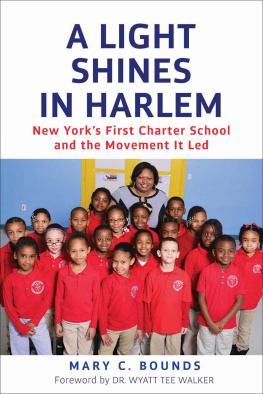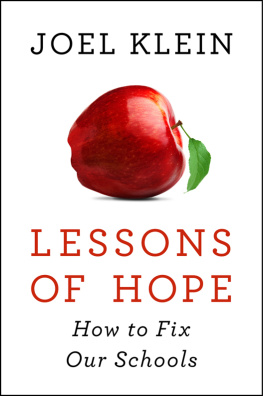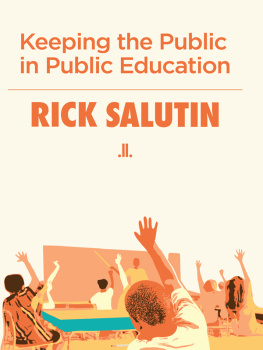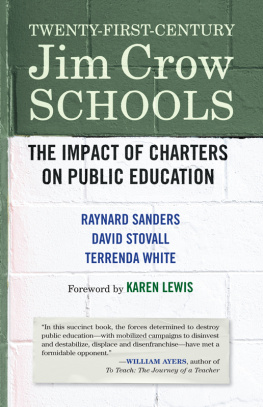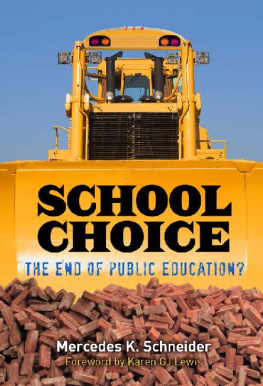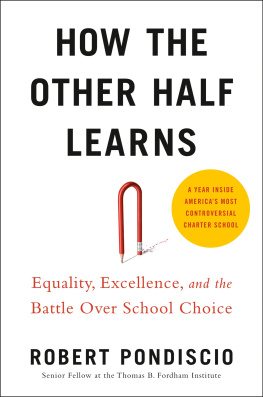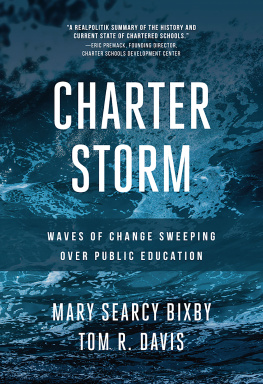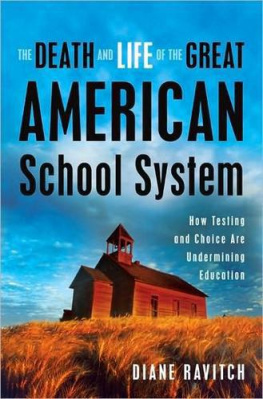Contents
Page List
Guide
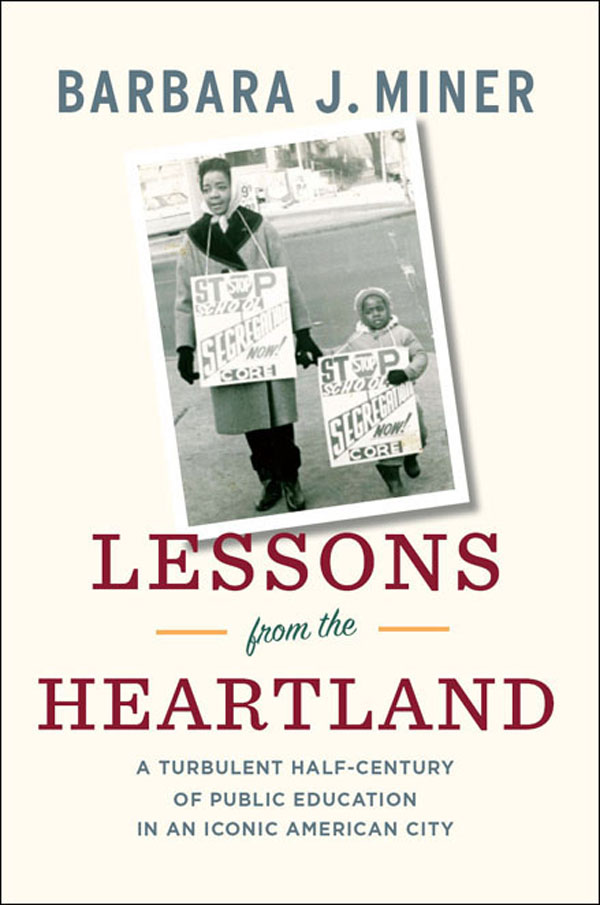
Lessons from the Heartland
EDITED BY BARBARA J. MINER
Selling Out Our Schools: Vouchers, Markets, and the Future of
Public Education (with Robert Lowe)
Keeping the Promise? The Debate over Charter Schools
(with Leigh Dingerson, Bob Peterson, and Stephanie Walters)
Failing Our Kids: Why the Testing Craze Wont Fix Our Schools
(with Kathy Swope)
Rethinking Columbus: Teaching About the 500th Anniversary of Columbuss
Arrival in America, 1st ed. (with Bill Bigelow and Bob Peterson)
Lessons from the Heartland
A TURBULENT HALF-CENTURY OF
PUBLIC EDUCATION IN AN ICONIC AMERICAN CITY
Barbara J. Miner

Copyright 2013 by PS1
All rights reserved.
No part of this book may be reproduced, in any form, without written permission from the publisher.
Requests for permission to reproduce selections from this book should be mailed to:
Permissions Department, The New Press, 120 Wall Street, 31st floor, New York, NY 10005.
The publisher is grateful for permission to reprint the following copyrighted material:
Glory Days by Bruce Springsteen. Copyright 1984 Bruce Springsteen (ASCAP).
Reprinted by permission. International copyright secured. All right reserved.
As I Grew Older and Let America Be America Again from THE COLLECTED POEMS OF LANGSTON HUGHES by Langston Hughes, edited by Arnold Rampersad with David Roessel, Associate Editor, copyright 1994 by the Estate of Langston Hughes. Used by permission of Alfred A. Knopf, a division of Random House, Inc. Reprinted by permission of Harold Ober Associates.
Money (Thats What I Want)
Words and Music by Berry Gordy and Janie Bradford
1959 (Renewed 1987) JOBETE MUSIC CO., INC.
All Rights Controlled and Administered by EMI APRIL MUSIC INC. and EMI BLACKWOOD
MUSIC INC. on behalf of JOBETE MUSIC CO., INC. and STONE AGATE MUSIC (A
Division of JOBETE MUSIC CO., INC.)
All Rights Reserved International Copyright Secured Used by Permission
Reprinted by Permission of Hal Leonard Corporation
Published in the United States by The New Press, New York, 2013
Distributed by Two Rivers Distribution
LIBRARY OF CONGRESS CATALOGING-IN-PUBLICATION DATA
Miner, Barbara.
Lessons from the heartland : a turbulent half-century of public education in an iconic
American city / Barbara Miner.
p. cm.
Includes bibliographical references and index.
ISBN 978-1-59558-864-7 (e-book)
1. Public schoolsWisconsinMilwaukeeHistory.I. Title.
LA390.M5M56 2013
371.010977595dc23
2012018151
The New Press publishes books that promote and enrich public discussion and understanding of the issues vital to our democracy and to a more equitable world. These books are made possible by the enthusiasm of our readers; the support of a committed group of donors, large and small; the collaboration of our many partners in the independent media and the not-for-profit sector; booksellers, who often hand-sell New Press books; librarians; and above all by our authors.
www.thenewpress.com
Composition by Westchester Book Composition
This book was set in Minion
10987654321
To my mother, who never questionedand
understoodwhy I sent my children to the
Milwaukee Public Schools
CONTENTS
Any book reflects the many influences on ones life. There are several people, however, who provided essential advice on this particular project. Thanks to Doug, Martha, and Terri for their writing advice. Thanks to Fred for his feedback as a journalist, and to Larry, Kathy, Rita, Nicki, Caitlin, Mahalia, and Bob for their school-based and community perspectives. Specific thank-yous to Bob Lowe for his feedback as an educational historian, and to Mary Bills for her encouragement, enthusiasm, and financial support that made this project possible.
Most of all, thanks to Bob Peterson. Among his many contributions, he exemplifies how quality teaching and social justice activism can instill in children both civic courage and a love of learning.
INTRODUCTION:
MILWAUKEE, PUBLIC SCHOOLS, AND THE FIGHT FOR AMERICAS FUTURE
The past is never dead. Its not even past.
William Faulkner
In the grip of a national recession that hit rust belt states especially hard, Milwaukee was used to bad news in the spring of 2010. Home foreclosures continued unabated. Decent-paying manufacturing jobs kept disappearing. The public schools were battered by one dismal report after another, from truancy to dropouts and test scores.
On Wednesday, March 24, a report in the Milwaukee Journal Sentinel shocked even the most cynical. The states African American fourth graders were at a lower reading level than their peers anywhere in the country. Lower than black students in Missouri, Arkansas, Tennessee, Oklahoma, and the District of Columbia. Worst of all, lower than Mississippi, a state that in the Wisconsin psyche was forever trapped in a stereotype of outhouses and illiteracy.
Although the results were statewide, they were an indictment of Milwaukee in general and its public schools in particular. Milwaukee, Wisconsins largest city, is home to about three-quarters of the states African American population, and about 60 percent of the citys public school students are African American.
A few months earlier, Wisconsin had earned another worst in the nation recognition, this time for black joblessness. Although driven by Milwaukee-area figures, the news failed to make major headlines in Milwaukee. It was left to the Washington Post to do a Christmas Eve feature on how Wisconsins official unemployment rate for African Americans surpassed that of every other state, reaching an average of 22 percent for the past 12 months.
In March 2011, meanwhile, Milwaukee gained notoriety as the most segregated metropolitan region in the country. The designation, based on U.S. Census data and compiled by social scientists from the University of Michigan, was reported on Milwaukees mainstream media chose not to report the findings.
A half century earlier, in the 1950s, Milwaukee was a symbol of industrial power and a promised land of family-supporting jobs. Even as late as 1970, the black male employment rate was about 85 percent, just a shade lower than the white percentage. No one would have predicted that within a generation, Milwaukee would become a national symbol of joblessness, decline, and racial disparity.
Whats more, few would have foreseen that the nations urban centers would become synonymous with failing schools surrounded by equally hard-pressed neighborhoods. Or that at the beginning of the twenty-first century the most segregated schools would be outside the South, with the fifteen most segregated metropolitan regions in the Northeast and Midwest.
Above all, no one would have predicted that Milwaukees educational claim to fame would be its school voucher program, the countrys oldest and largest and a conservative model for similar initiatives. An unabashed abandonment of public education, Milwaukees voucher program has funneled more than $1 billion in public money into private and religious schools since 1990.
What happened? How did Milwaukee, the working-class but ever-optimistic setting for Happy Days and Laverne & Shirley


